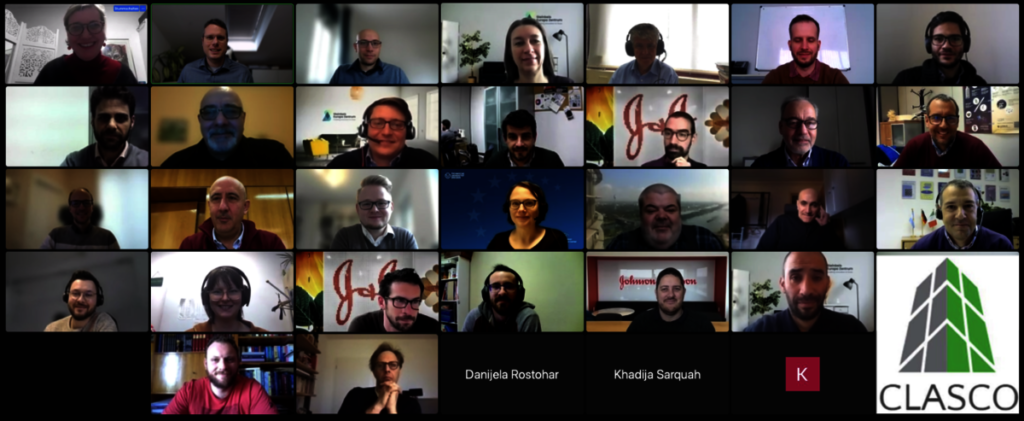
CLASCO - Climate Neutral and Digitized Laser Based Surface Functionalization of Parts with Complex Geometry, the European research project coordinated by the TU Dresden and funded by the European Union within the framework of Horizon Europe, was launched at the beginning of January. With a total funding of about 4.8 million euros, the project aims to revolutionize manufacturing with a climate-neutral and digitized laser-based surface functionalization for complex parts.
The project brings together 13 partners from 6 countries, including Spain, France, the UK, Austria, Ireland, and Germany, to combine 3 laser technologies to create advanced parts. CLASCO has six main objectives, including the development of optimized designs, laser-based treatments for advanced surface functionalization, in-line monitoring processes, data acquisition and control feedback loops using machine learning and AI, product demonstrators with high-performance requirements, and validation of resource and energy savings.
By the combination of additive manufacturing, laser polishing, and direct laser interference patterning the project offers an innovative and versatile solution for the production of high-quality and precise products. Additive manufacturing allows for the creation of complex and intricate designs, while laser polishing provides a smooth and reflective surface finish. Finally, direct laser interference patterning offers precise and controllable micro-patterning for improved surface properties. These techniques can be utilized in a variety of industries, including optics, biomedical, and aerospace, to produce high-quality and functional products. The combination of these techniques provides a multi-functional solution that offers both design flexibility and surface refinement, making it a valuable tool for manufacturers.
The project partners will demonstrate the potential of the developed technologies using different case studies. With a Technology Readiness Level (TRL) of 3-4, the project is expected to reach TRL 6 by the end of its 3.5-year duration, showcasing the feasibility and readiness of the developed technologies for commercialization and implementation in the industry.
In the face of the challenge to introduce climate-neutral value chains and manufacture sustainable products, innovative production processes such as fully digitalized 3D manufacturing processes are becoming increasingly important. The CLASCO project will replace conventional surface treatments with laser treatments, enabling both surface quality control and the development of new surface functions, while fully digitizing the process to increase efficiency.
The project leader, Prof. Dr. Andrés Fabián Lasagni from TU Dresden, stated, "The CLASCO project is an exciting opportunity to revolutionize manufacturing with climate-neutral and digitized laser-based surface functionalization for complex parts. We look forward to working with our partners to achieve our goals and make a positive impact on the industry and sustainability."
The consortium:
Technische Universität Dresden (TUD) - Coordination
ABCircular GmbH (ABC)
Airbus Defence and Space S.A.U. (AIRBUS DS, SAU)
CT Ingenieros Aeronauticos de Automoción e Industriales SL (CTI)
DePuy Ireland Unlimited Company (DPS)
Deutsche Gesellschaft für Materialkunde e.V. (DGM)
Fundación Andaluza para el Desarrollo Aeroespacial (CATEC)
New Infrared Technologies, SL (NIT)
nLight GmbH (NIL)
Steinbeis 2i GmbH (S2i)
SurFunction GmbH (SF)
SYLAS SA (SYLAS)
Z Prime Limited (ZP)
Horizon Europe:
EU’s key funding programme for research and innovation with a budget of €95.5 billion. It tackles climate change, helps to achieve the UN’s Sustainable Development Goals and boosts the EU’s competitiveness and growth. The programme facilitates collaboration and strengthens the impact of research and innovation in developing, supporting and implementing EU policies while tackling global challenges. It supports creating and better dispersing of excellent knowledge and technologies. It creates jobs, fully engages the EU’s talent pool, boosts economic growth, promotes industrial competitiveness and optimises investment impact within a strengthened European Research Area.
“Funded by the European Union. Views and opinions expressed are however those of the author(s) only and do not necessarily reflect those of the European Union. Neither the European Union nor the granting authority can be held responsible for them.”